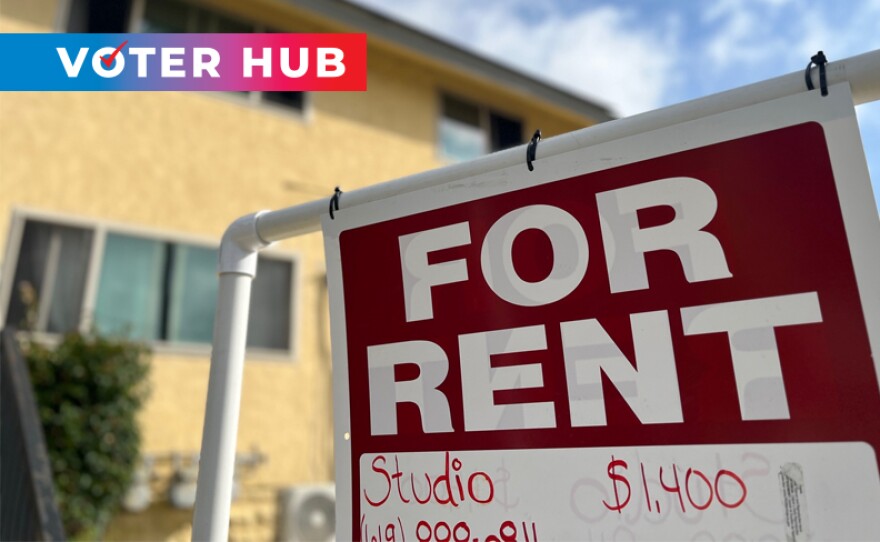California voters have rejected Proposition 33, a ballot measure that would allow local jurisdictions to pass rent control ordinances.
Why it matters
California limits rent increases to 10% a year for tenants living in apartments built before 1995.
But a law known as Costa-Hawkins prevents cities and counties from passing further rent control, like for newer buildings, single-family homes or new tenants.
The Justice for Renters Act, Proposition 33, would repeal that law, allowing cities and counties to create local rent control laws for any housing.
Supporters say it's necessary to prevent more Californians from becoming unhoused and having to make survival choices between food, medicine and rent.
Opponents say it would make the housing crisis worse by discouraging development and driving landlords out of the market.
By the numbers
- Nearly a third of California renters spend more than half their income on rent, according to the Public Policy Institute of California.
- Homelessness in California is up by more than 20% since 2019, according to Point-in-Time Count data.
- As of mid-October, almost $143 million was invested in this ballot measure — $50 million in support and nearly $93 million in opposition.
- California's legislative analyst estimates it would reduce local property tax revenues by at least tens of millions of dollars annually due to likely expansion of rent control in some communities.
Closer look
In 2021, the University of Minnesota analyzed more than a dozen studies on the impacts of rent control.
They found it does work to keep rent lower and increase housing stability for current tenants.
They said there’s not much evidence that it reduces new construction or housing quality.
But they found rent control does tend to reduce the total number of rental units as owners take them off the market.
Proposition 33 would not create more rent control overnight. Local governments would still have to design and pass new laws.






